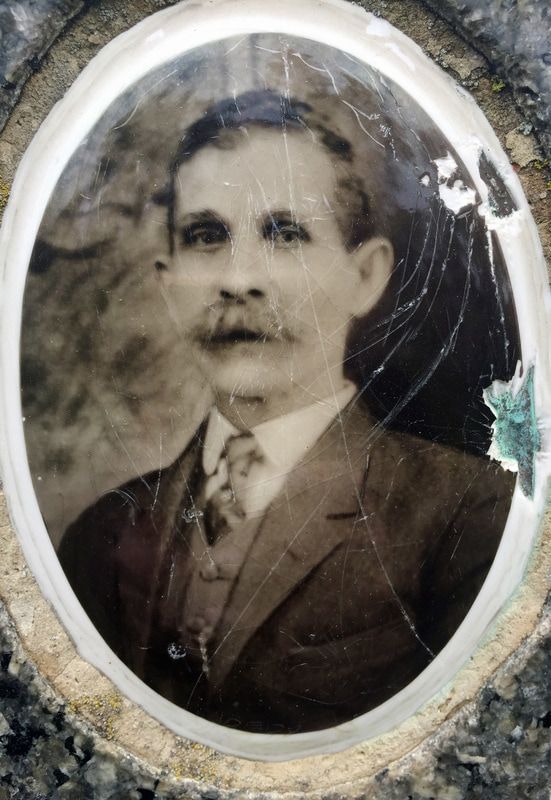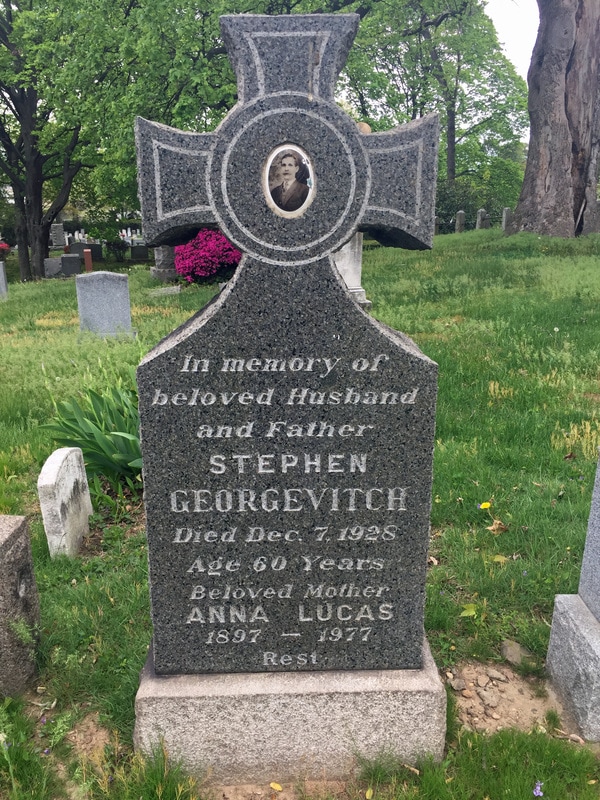The rear-room of a two-room shanty in the gypsy camp are where Maspeth Romanies from all over the Metropolitan area are gathering to have a last look at one of the leaders of their race. Steven Georgovitch, wealthy and wise by the standards of the Romany, died suddenly of heart failure Thursday morning. By 6 o'clock last night the word had spread far and wide and the members of the Georgovitch clan, which are many, were hurrying by train and automobile to pay their respects to the old man.
The low ceilings, un-papered rear room presented an unusual scene last night, a section of the gray rear wall was blotted out by the green of many potted palms, and before this was placed on silvered stands a great oaken casket, beautifully and expensively lined with soft white silk.
Within this casket, as fine as any ever used by their supposedly more prosperous "gajos" neighbors, lay the white haired, white mustached leader, attired in a suit of fine grayish material. At head and foot burned candles in great silver candlesticks, while from the center of the room hung an old fashioned oil lamp.
A constantly changing crowd filled the room. There were old men in shabby suits and young men in the latest cut styles of the gajos, old and middle-aged women in the flowing, many colored dresses and blouses characteristic of their race for ages, and young girls in the latest creations of Sixth Avenue modistes.
The members of the family were easily distinguished by the fact that they were seated and either crying or calling out loud their grief. The others stood by quiet, gazing for a while, then leaving with brief comments to the bereaved.
Outside there is talk of the funeral. It will be Sunday, in a church in Brooklyn. And the talk is of the band that is to be hired. A great band, as befits a great man. The band will play "all the way to the church in all the way back again to the cemetery and Maspeth."
Meanwhile the camp is in mourning and between now and Sunday will take place a peculiar mixture of century old customs and modern American ideas, for the Romany in America does not forget his forefathers' customs nor does he reject the ways of those about him. – Brooklyn Daily Eagle December 8, 1928
The low ceilings, un-papered rear room presented an unusual scene last night, a section of the gray rear wall was blotted out by the green of many potted palms, and before this was placed on silvered stands a great oaken casket, beautifully and expensively lined with soft white silk.
Within this casket, as fine as any ever used by their supposedly more prosperous "gajos" neighbors, lay the white haired, white mustached leader, attired in a suit of fine grayish material. At head and foot burned candles in great silver candlesticks, while from the center of the room hung an old fashioned oil lamp.
A constantly changing crowd filled the room. There were old men in shabby suits and young men in the latest cut styles of the gajos, old and middle-aged women in the flowing, many colored dresses and blouses characteristic of their race for ages, and young girls in the latest creations of Sixth Avenue modistes.
The members of the family were easily distinguished by the fact that they were seated and either crying or calling out loud their grief. The others stood by quiet, gazing for a while, then leaving with brief comments to the bereaved.
Outside there is talk of the funeral. It will be Sunday, in a church in Brooklyn. And the talk is of the band that is to be hired. A great band, as befits a great man. The band will play "all the way to the church in all the way back again to the cemetery and Maspeth."
Meanwhile the camp is in mourning and between now and Sunday will take place a peculiar mixture of century old customs and modern American ideas, for the Romany in America does not forget his forefathers' customs nor does he reject the ways of those about him. – Brooklyn Daily Eagle December 8, 1928


 RSS Feed
RSS Feed